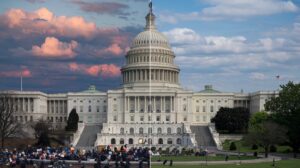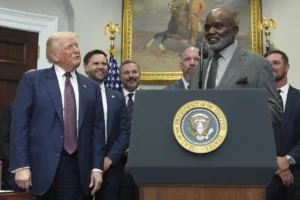Democratic Base’s Growing Frustration Puts Party Leaders on Notice
The Democratic Party is facing a major internal crisis as frustration among its base reaches new heights. With growing dissatisfaction over leadership decisions and party direction, grassroots activists and voters are demanding immediate change ahead of crucial elections. As these tensions rise, party leaders must take action or risk significant political consequences.
Why Are Democratic Voters Frustrated?
The disconnect between Democratic leadership and its voter base is growing. Many supporters feel the party has not been aggressive enough in challenging Republican policies or delivering on key campaign promises.
A recent Pew Research survey revealed that:
- 65% of Democratic voters think their party is not opposing Republican policies strongly enough.
- 58% express concerns over leadership effectiveness in implementing progressive policies.
This dissatisfaction is particularly high among young and progressive voters who expected more bold action on healthcare, climate change, and student loan relief. If not addressed, this frustration could lead to lower voter turnout in key elections.
Key Incidents That Have Triggered Discontent
Several political decisions and events have intensified the frustration among Democratic supporters:
| Incident | Impact on Democratic Base |
|---|---|
| Spending Bill Controversy | Democrats supported a Republican-driven spending bill, angering progressives who expected stronger opposition. |
| Leadership Shake-ups | Activists in key states like Arizona and Georgia have pushed for new party leadership, arguing that the current leaders are out of touch. |
| Primary Challenges | More progressive candidates are challenging Democratic incumbents, showing a demand for fresh leadership. |
The Democratic base wants leaders who will stand firm on progressive policies rather than compromise with Republican lawmakers.
Progressives vs. Moderates: The Internal Battle
The Democratic Party is currently divided into two main factions:
- Progressives: Led by figures like Alexandria Ocasio-Cortez and Bernie Sanders, they advocate for policies such as Medicare for All, student debt forgiveness, and aggressive climate action.
- Moderates: Led by politicians like Joe Biden and Chuck Schumer, they believe a centrist approach is necessary to win over swing voters.
A Gallup poll indicates that 72% of younger Democratic voters prefer progressive candidates over moderates. This generational shift suggests that future Democratic leadership may lean further left, despite resistance from the current establishment.
What Are the Consequences If the Party Ignores This Crisis?
If Democratic leaders fail to address this growing frustration, the party could face serious consequences, such as:
| Potential Consequence | Impact |
| Lower Voter Turnout | Disillusioned Democrats may choose not to vote, affecting critical swing states. |
| Rise of Third-Party Candidates | Some voters may support independent progressive candidates instead. |
| Republican Gains in Elections | A divided Democratic Party could lead to more Republican victories in battleground states like Pennsylvania, Wisconsin, and Georgia. |
This means Democratic leaders must act now to restore trust, unify the party, and ensure strong voter participation in upcoming elections.
What Can the Democratic Party Do to Regain Trust?
To maintain voter support and prevent political losses, party leaders must:
- Engage With Grassroots Activists – Listen to the concerns of progressive voters and implement policies that reflect their priorities.
- Strengthen Opposition to Republican Policies – Take a firmer stance against GOP legislation instead of compromising too easily.
- Support Progressive Candidates – Endorse and uplift candidates who resonate with younger voters and marginalized communities.
- Deliver on Key Promises – Focus on issues like healthcare, climate change, and economic relief to demonstrate real progress.
If Democratic leaders successfully address these concerns, they can rebuild trust and unity within the party.
Conclusion: A Defining Moment for the Party
The Democratic Party stands at a crossroads. If leaders continue ignoring their base, they risk losing voter trust, reducing engagement, and weakening their chances in future elections.
By listening to grassroots activists, embracing bold policy changes, and demonstrating a clear commitment to progress, they can restore confidence among voters and position the party for long-term success.





